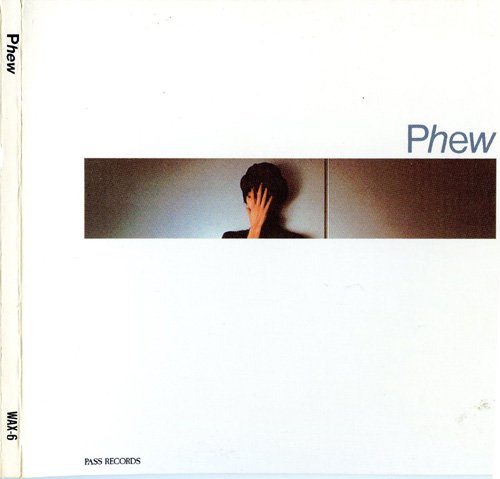“Phew” is an expression of relief for narrowly avoiding something. It’s also an apt name for a vocalist who has escaped every close call with mainstream recognition while still being a legendary contributor to avant-garde J-Pop, releasing an album as recently as 2010. Her 1981 debut was recorded in the German studio of Krautrock behemoth producer Conny Plank before his death in 1986, with two members of Can. But besides being in the right place at the right time for these collaborations, Phew’s career doesn’t live up to her cute escape-artist stage name. It’s evident that it took persistence, savvy, and curiosity to have crafted so many albums with collaborators that seem heaven-sent. In the 90s she was a member of a Japanese supergroup Novo Tono which included Seiichi Yamamoto of The Boredoms, and she also worked with Ryuichi Sakamoto at the height of his creativity with Yellow Magic Orchestra.
Any attempt to understand Phew’s debut album as the defining event of her long career is like trying to shrink an exploded universe of creativity back into its Pandora’s box. The album kicks off with the bright statement of “Closed,” and yet it doesn’t fold small enough to be confined here. On the one hand “Closed” is heavily indebted to the Can/Plank influence — the song’s energy bubbles up from underneath with an electronic viscera of miked-up drums and dub energy, something that Plank was known for infusing into krautrock. But then there is the very Japanese statement of those zither-like synths.
Phew is a distinct statement that stands up in its own right, but there is still something cerebral, powerful, and selective that begins here, as if Phew knew she couldn’t miss by working with the right people and aiming for the avant-garde jugular. As a vocalist, Phew is mercurial – both cold and passionate, singing badly to evoke freedom and sweetly to evoke intimacy. I don’t know what her Japanese lyrics mean, but when a specific vocal style is used for some songs, like the lovely, weary piano anomaly of “Dream”, her role is easy to translate. Often Phew is defiant within her echoey darkwave/proto-industrial cavern. But sometimes she’s hoarse and unsure, as if putting a recent dream into words. Most often she carries an incredibly strong debut as an equal partner with her heavy lifting companions, who leave us with another compelling artifact of the brilliant drum and electronic experiments that German music provided in the 70s and 80s.
